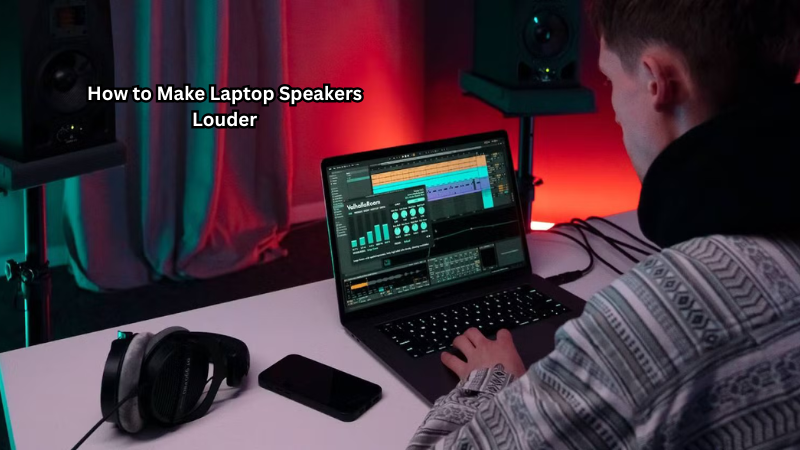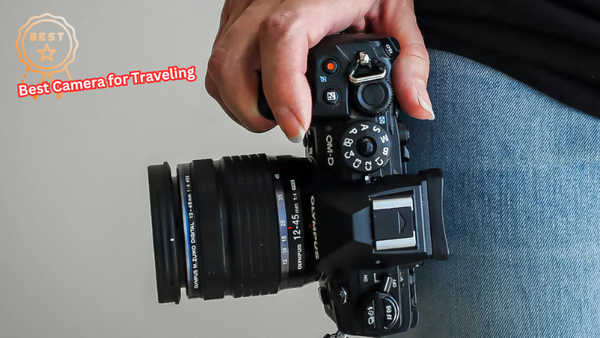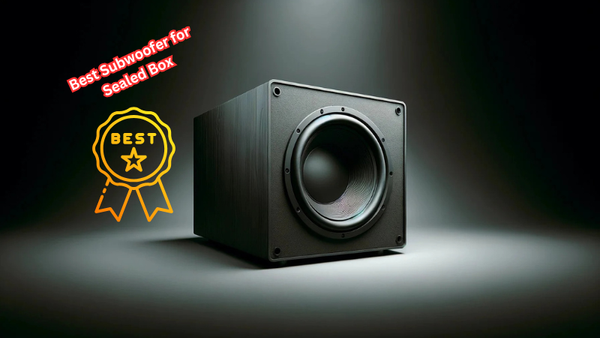In today's digital age, maximizing the sound quality of your laptop speakers is essential for an immersive audio experience. Many users face the frustrating issue of low speaker volume, often found when the speaker icon shows full volume yet the sound isn’t quite loud enough.
Enhancing this is not only about making the sound louder but also clearer and more vibrant. Solutions range from adjusting audio settings within your system to using loudness equalization for balanced output.
Additionally, investing in external speakers can significantly amplify your laptop's audio capabilities. In this guide, we will explore practical methods to boost your laptop speaker volume, ensuring you never miss a beat.
Importance of Clear Audio
Before we delve into how to make laptop speakers louder, let's first understand why having clear audio is crucial. Most laptops come equipped with basic built-in speakers that may lack depth and richness in sound quality.
Clear audio not only enhances the overall listening experience but also allows you to pick up on subtle nuances in music or dialogues in a video. Furthermore, it eliminates distortion and buzzing, which can be caused by low speaker volume.
Also, in the current age of remote work and virtual meetings, having clear audio is essential for effective communication. It ensures that everyone can hear and understand what is being said, without any disruptions or distractions.
What Kind of Speaker Volume Do You Need?
Determining the right speaker volume for your laptop will depend on personal preferences and the context in which you are using it.
For example, if you are listening to music or watching a movie alone in a quiet room, you may want the sound to be louder for an immersive experience.
However, if you are in a public place or having a video call with others around, blasting loud audio can be disruptive and even rude.
It is crucial to find a balance between comfortable listening levels and respecting those around you. To get better sound quality without raising the volume too high, you can also invest in noise-canceling headphones or external speakers.
How to Make Laptop Speakers Louder
Now that we understand the importance of clear audio and determining the right speaker volume, let's explore some practical methods to make your laptop speakers louder.
Adjust Audio Settings Within Your System
The first step in boosting your laptop's speaker volume is to check and adjust the audio settings within your system. This includes:
- Volume Settings: You can start by adjusting the volume levels on your laptop. Many laptops have dedicated keys or buttons for increasing or decreasing the volume.
- Volume Mixer: If you are using a Windows operating system, you can access the Volume Mixer by clicking on the speaker icon on your taskbar. Here, you can adjust the individual volume levels for each application running on your laptop.
- Control Panel: In the Control Panel, you can navigate to Sound and then click on Speakers or Audio Devices. Here, you can adjust the volume levels and also check for any updates for your sound drivers.
Use Loudness Equalization
Another way to increase your laptop's speaker volume is by using loudness equalization within your audio settings. This feature is available in Windows operating systems and works by amplifying quiet sounds while preventing any clipping or distortion at maximum volume.
You can enable loudness equalization by:
- Right-clicking on the speaker icon on your taskbar and select "Playback devices".
- Selecting your internal speakers from the list of audio devices.
- Clicking on "Properties" and navigating to the "Enhancements" tab.
- Check the box next to "Loudness Equalization" and then click on "Apply".
This should boost your laptop's speaker volume without compromising sound quality.
Invest in External Speakers
If you are still not satisfied with the volume of your laptop speakers, investing in external speakers is a viable option. There are many affordable and portable options available in the market that can significantly enhance your audio experience.
When choosing external speakers, consider factors such as size, portability, compatibility with your laptop, and most importantly, sound quality. Look for features like bass boost or surround sound for better audio output.
Additionally, some external speakers also have a headphone jack, allowing you to connect your headphones for a more personalized and louder audio experience.
Use Audio Boosters
There are also various software and applications available that can boost your laptop's speaker volume. These audio boosters work by amplifying the sound output beyond the system's capabilities.
However, it is essential to exercise caution when using these applications as they can sometimes cause distortion or damage to your speakers if used at maximum volume for extended periods.
Some popular audio booster options include:
- Boom 3D: This app offers immersive 3D surround sound with customizable equalizer settings.
- FXSound: It enhances bass and clarity in audio and allows you to choose from different presets for various types of audio.
- DFX Audio Enhancer: This software provides a dynamic boost to your laptop's speaker volume and also has options for personalizing sound output.
Boost sound settings and optimize audio quality with these applications to make your laptop speakers louder.
Check for Updates and Drivers
Sometimes, outdated sound drivers can cause issues with speaker volume on laptops. It is essential to regularly check for updates and install the latest ones to ensure optimum performance.
You can check for updates by going to the Control Panel, selecting Sound or Audio Devices, and clicking on "Check for Updates". If any updates are available, download and install them accordingly.
Additionally, you can also try updating your laptop's BIOS (Basic Input/Output System) as it controls various hardware components, including the sound system. However, this should only be done if you are familiar with the process or under the guidance of an expert.
Keep Your Laptop Speakers Clean
Lastly, it is crucial to keep your laptop's internal speakers clean for optimal sound quality. Dust and debris can muffle sound output, making it seem lower than usual. Regularly clean your laptop's speakers with a soft cloth or compressed air to remove any buildup.
Additionally, avoid placing your laptop on soft surfaces like beds or carpets as this can block the speaker vents and decrease volume levels.
So, external speaker volume, loudness equalization, audio boosters, driver updates, and clean speakers are some practical ways to make your laptop speakers louder.
Do Bluetooth Speakers Provide Better Sound Quality?
Bluetooth speakers are a popular choice for their portability and convenience. However, many people wonder if they provide better sound quality compared to traditional laptop speakers.
The answer is not straightforward as it depends on various factors such as the brand, model, and price of the Bluetooth speaker. Some high-end Bluetooth speakers can offer superior sound quality that rivals or even surpasses laptop speakers. This is due to advancements in technology and audio engineering that have made it possible to produce compact yet powerful wireless speakers.
On the other hand, cheaper or lower-quality Bluetooth speakers may not provide significant improvements in sound quality compared to laptop speakers. Some may even have distorted or muffled sound output.
So, when considering Bluetooth speakers for better sound quality, it is essential to do thorough research and read reviews before making a purchase. Additionally, factors such as the size and location of the speaker can also impact sound quality.
Tips for Better Sound Quality
Apart from increasing the volume, there are other ways to improve the sound quality of your laptop speakers. These include:
- Keeping your speakers clean and free of dust and debris: This can help prevent any distortion or buzzing noises caused by obstructions in the speaker.
- Updating sound drivers regularly: Outdated or corrupted sound drivers can affect the quality and volume of your laptop's audio output. Make sure to check for updates regularly.
- Adjusting equalizer settings: Experiment with equalizer settings to find the best sound output for your preference. You can also download and install third-party equalizer software for more customization options.
- Placing your laptop on a hard, flat surface: This helps prevent any vibrations or rattling noises that may affect the sound quality.
By following these tips and implementing the suggestions mentioned above, you can boost your laptop's speaker volume and enhance overall audio quality for a better listening experience.
Does a Physical Adjustments Can Improve Sound Quality
From laptop volume control to equalizer settings, there are various ways to adjust and optimize sound output on a device. However, did you know that physical adjustments can also make a significant difference in sound quality?
One way to improve the sound quality of your laptop speakers is by adjusting their positioning. The ideal placement for optimal audio performance is at ear level. If your laptop has upward-facing speakers, try elevating the back of the device with a stand or book to direct the sound toward you.
Alternatively, you can also use external speakers as they provide more flexibility in terms of placement and direction of sound.
Another physical adjustment one can make is using acoustic panels or foam padding around the room where you plan to listen to music or watch videos. These materials help absorb sound reflections, resulting in clearer and more accurate audio.
FAQs
Is it safe to use external audio boosters?
Yes, as long as they are used in moderation and not at maximum volume for extended periods. It is also crucial to read reviews and choose reputable brands to avoid any damage to your speakers or laptop.
How often should I clean my laptop's internal speakers?
It is recommended to clean them once every few months, depending on usage and the environment in which the laptop is kept. If you notice a decrease in sound quality, it may be time for a cleaning.
Do all laptops have equalizer settings?
No, not all laptops come with built-in equalizer settings. In such cases, you can download third-party software or apps that offer equalization options. Some external speakers also have built-in equalizers.
Conclusion
In conclusion, enhancing your laptop's audio performance involves a combination of strategies, from tweaking audio settings and utilizing loudness equalization to integrating external speakers for a more robust sound experience.
Each method offers unique benefits, and experimenting with these techniques can help you discover the best solution for your specific needs.
Don't hesitate to adjust the speaker icon settings and explore software enhancements that can make your sound louder and clearer. Remember, the goal is to achieve not just volume, but also superior sound quality.
We encourage you to try these suggestions and share your insights or additional tips in the comments. Together, let's create an optimal audio environment for everyone.





